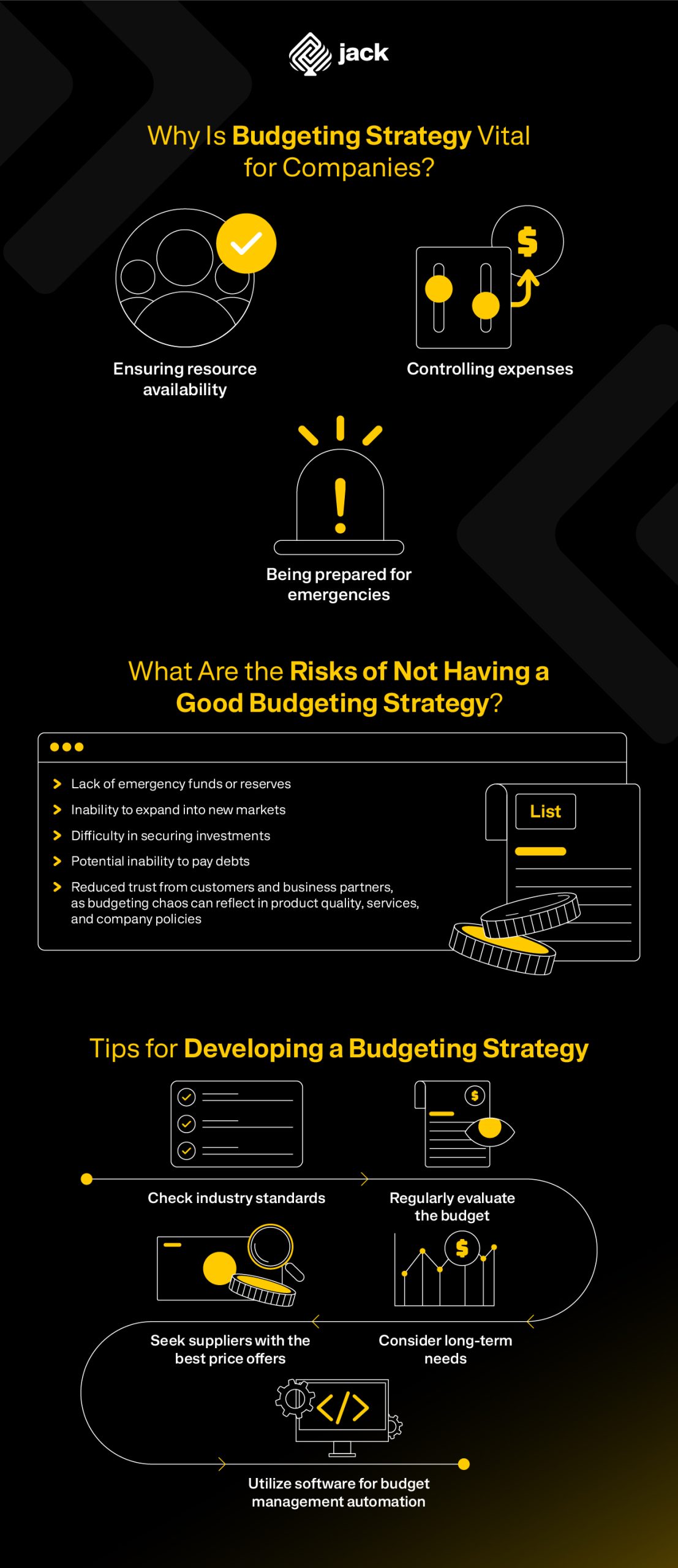In the era of digitalization, businesses worldwide have undergone significant changes in their operations. The use of online advertising platforms has increased, and market penetration has expanded.
On the other hand, with advertisements now widespread and easily reaching internet users, converting them into buyers becomes more challenging. Massive promotions do not always guarantee immediate profits.
Therefore, companies need to control their expenses not only in marketing activities but also in other operational costs such as employee salaries and benefits, raw material purchases, rent, and IT and technology expenses.
What are the strategies for effectively managing budgets? Let’s first discuss the reasons behind the importance of budgeting strategies and the best ways to implement them.
Why Is Budgeting Strategy Vital for Companies?
Budgeting is the process of preparing and overseeing financial documents to estimate income and expenses for a period. For business owners, executives, and managers, budgeting is a key skill to ensure that the company has sufficient resources for long-term business sustainability.
According to various sources, there are several reasons why budgeting is crucial for businesses:
1. Ensuring resource availability
The primary function of budgeting is to ensure that a business has enough funds to achieve its goals. By planning finances from the beginning, a company can clearly allocate the budget only for priority objectives while reducing the portion for activities that are not of high urgency.
2. Controlling expenses
With well-conceptualized budgeting, businesses can control expenses by allocating them based on a priority scale. For example, a company can determine how much budget should be spent on marketing by dividing it between paid advertisements and organic channels, based on the speed of delivering results.
3. Being prepared for emergencies
There are always unforeseen risks that can hinder business operations. Budgeting can help companies set aside funds for emergencies so that if any unforeseen events occur, they don’t need to panic and reallocate funds from other areas.
What Are the Risks of Not Having a Good Budgeting Strategy?
As budgeting is a crucial part of business operations, failure to do it correctly can have several negative impacts, including:
- Lack of emergency funds or reserves
- Inability to expand into new markets
- Difficulty in securing investments
- Potential inability to pay debts
Reduced trust from customers and business partners, as budgeting chaos can reflect in product quality, services, and company policies
See also video tutorials from financial and business from Jack.

Tips for Developing a Budgeting Strategy

1. Check industry standards
While not all businesses are the same, there are industry-related revenue standards that can be traced through news articles, research findings, or direct interviews with business owners. From there, businesses can estimate the percentage of revenue they will obtain and how it should be allocated, such as for employee salaries or raw material purchases from suppliers.
2. Regularly evaluate the budget
Consider periodically evaluating the budget that has been created, such as at the end of each month. The finance management team can compare actual figures in financial reports with the previously estimated budget. Based on this comparison, the company can assess performance or financial health and revise the budget as needed.
3. Consider long-term needs
Companies have projects that require months or even years of preparation. For example, if the company’s goal is to secure a government contract within two years, it may need to budget for significant recruitment costs or additional raw materials to meet the demand.
Include these calculations in the budget earlier so that the company has more time to prepare the funds instead of resorting to immediate borrowing.
4. Seek suppliers with the best price offers
Business owners should not hesitate to seek suppliers with the best price offers to save on expenses. Consider that the partnership with suppliers may last for a long time, so it is important to negotiate favorable prices for raw materials not only for one-time purchases but also for future transactions.
5. Utilize software for budget management automation
There are various software options that businesses can use to automate budget management. Leveraging technology can minimize the risk of human errors, especially in repetitive tasks such as accounting records. Choose software that can integrate multiple services or platforms to have more comprehensive features.
Typically, companies opt for software based on API (Application Programming Interface), which serves as a versatile platform. Some features that users can enjoy include:
- Departmental budgeting: dividing the budget based on departments, divisions, or profit centers.
- Collaboration: providing access to multiple individuals within the company to work on budget planning processes.
- Financial performance evaluation: granting access to compare actual amounts with budgeted amounts.
Properly executed budgeting strategies have a significant impact on the success of a business. Strategic budget planning enables businesses to plan and manage resources effectively, control expenses, set clear business goals, and make fact-based decisions.
Utilizing software for budget management is an added advantage due to the benefits it offers, such as process automation, improved team collaboration, and in-depth analysis.






